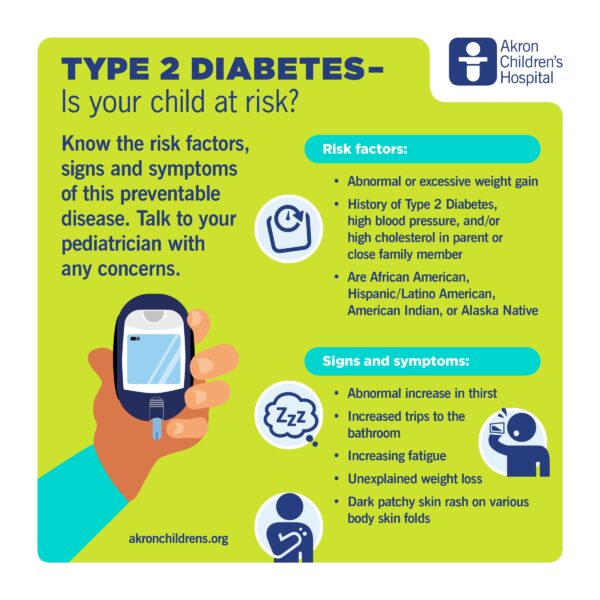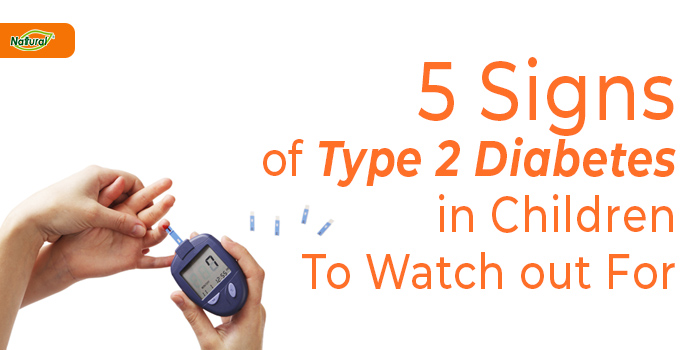Type 2 diabetes in children presents with symptoms such as frequent urination and increased thirst. This article explores additional signs and symptoms of type 2 diabetes in children, providing parents and caregivers with valuable information to identify and manage this condition effectively.
Recognizing Signs And Symptoms
If you're a parent or guardian, it's important to be aware of the potential signs and symptoms of type 2 diabetes in your child. Catching these signs early can lead to prompt diagnosis and treatment, which is crucial for managing the condition effectively. In this article, we will explore three common signs and symptoms to be vigilant about: unexplained weight loss, increased thirst, and increased urination.
Unexplained Weight Loss
Unexplained weight loss can be a cause for concern, especially when it occurs rapidly and without any significant changes in diet or exercise. If your child is losing weight unexpectedly, it may be an early sign of type 2 diabetes.
The body's inability to properly utilize insulin can lead to increased breakdown of fat and muscle for energy, resulting in weight loss. Keep a close eye on your child's weight fluctuations and consult with a healthcare professional if you notice any unexplained changes.
Increased Thirst And Urination
Another common sign of type 2 diabetes in children is increased thirst and urination. When blood sugar levels are higher than normal, the body tries to flush out the excess sugar through urine. As a result, your child may experience a constant feeling of thirst and an increased need to urinate frequently
. Pay attention to these symptoms, especially if they occur alongside other signs like fatigue and irritability. It's important to consult with a healthcare professional for proper evaluation and diagnosis.

Credit: www.akronchildrens.org
Physical Symptoms
Discovering physical symptoms of type 2 diabetes in a child can be alarming. Look out for signs such as increased thirst, frequent urination, and unexplained weight loss. These symptoms should prompt a visit to a healthcare professional for proper diagnosis and treatment.
Fatigue
One of the physical symptoms to look out for in children with type 2 diabetes is fatigue. If your child frequently complains of feeling tired and lethargic, it could be a sign that their body is not effectively using glucose for energy. Persistent fatigue should not be ignored and should prompt a visit to a healthcare professional for further evaluation.
Blurred Vision
The second physical symptom that may indicate type 2 diabetes in children is blurred vision. High blood sugar levels can cause the lens in the eyes to swell, leading to changes in vision. Your child might have difficulty focusing or experience blurred vision that is not easily corrected. It is crucial to address this symptom promptly and seek the advice of a medical expert.
Emotional And Behavioral Signs
Childhood type 2 diabetes may exhibit emotional and behavioral signs such as irritability, mood swings, and increased aggressiveness. These signs could indicate fluctuations in the child's blood sugar levels, requiring immediate medical attention. Helping children manage their emotions is vital for maintaining their overall health.
Irritability
One of the emotional signs of type 2 diabetes in children is irritability. Kids with this condition may exhibit excessive irritability, becoming easily frustrated or angry, even over minor issues. They might have trouble controlling their emotions, leading to frequent outbursts or meltdowns.
This irritability can be attributed to the physiological changes happening in their bodies. When blood sugar levels are elevated, it can affect the brain's functioning and contribute to mood disturbances. Additionally, the child may feel overwhelmed by the challenges of managing their diabetes, causing further frustration and irritability.
Mood Swings
Mood swings are another common emotional sign of type 2 diabetes in children. These mood swings can vary from extreme shifts in emotions, such as going from being happy to suddenly feeling sad or vice versa. The child may seem more irritable and sensitive than usual, making it difficult for parents and caregivers to understand and manage their behavior.
The underlying cause of mood swings in children with type 2 diabetes is again related to fluctuating blood sugar levels and hormonal imbalances. These chemical changes in the body can impact neurotransmitters, affecting the child's mood and behavior. It's important for parents and caregivers to be patient and provide support during these emotional fluctuations.
Tables Demonstrating Emotional And Behavioral Signs:
| Emotional Signs | Behavioral Signs |
|---|---|
| Irritability | Refusing to comply with daily diabetes management tasks |
| Mood swings | Withdrawal from social activities or friends |
| Depression | Changes in sleeping patterns (excessive sleep or insomnia) |
| Anxiety | Difficulty concentrating or poor school performance |
The table above provides a concise summary of some emotional and behavioral signs parents and caregivers should be aware of in children with type 2 diabetes. Recognizing these signs early on can help ensure proper management and support for the child's well-being.

Credit: www.osfhealthcare.org
Complications And Risks
When it comes to type 2 diabetes in children, understanding the complications and risks is crucial. Long-term health effects, as well as the impact on growth and development, are significant concerns that parents and healthcare professionals should be aware of.
By being well-informed about these potential complications, preventive measures and appropriate management strategies can be put in place to safeguard a child's health.
Long-term Health Effects
The long-term health effects of type 2 diabetes in children can be both serious and far-reaching. Over time, high blood sugar levels can wreak havoc on various organs and systems in the body. Here are some of the potential long-term complications:
- Heart disease: Uncontrolled diabetes can contribute to the development of heart disease, including coronary artery disease and heart attacks. Regular monitoring of blood pressure and cholesterol levels is crucial to minimize this risk.
- Kidney disease: Elevated blood sugar levels can damage the kidneys over time, leading to impaired kidney function and potentially even kidney failure. Regular kidney function tests are necessary to detect any issues early on.
- Nerve damage: Diabetes can cause peripheral neuropathy, resulting in tingling, numbness, or pain in the extremities. Regular foot checks and overall sensory assessments can help identify any nerve damage early.
- Eye complications: High blood sugar levels can damage the blood vessels in the eyes, leading to diabetic retinopathy and potentially causing vision loss. Regular eye exams are essential to detect any abnormalities and ensure early intervention.
Impact On Growth And Development
Diabetes can also have a significant impact on a child's growth and development. The condition can interfere with normal hormonal processes and nutrient absorption, potentially leading to:
- Delayed growth: Poorly managed diabetes can inhibit a child's growth potential, causing them to be shorter than their peers. Maintaining good blood sugar control and ensuring adequate nutrition are vital for proper growth.
- Delayed puberty: Diabetes can disrupt the timing of puberty, leading to a delay in sexual development. Close monitoring of hormonal levels and appropriate management can help mitigate this risk.
- Emotional and social difficulties: Coping with the demands of diabetes can be emotionally challenging for children. It can affect their self-esteem and cause social isolation. Providing emotional support and fostering a supportive environment is crucial for their overall well-being.
By understanding and addressing the potential complications and risks associated with type 2 diabetes in children, parents and healthcare professionals can work together to provide the best possible care. Regular medical check-ups, proper management, healthy lifestyle habits, and emotional support are all essential in helping children with type 2 diabetes lead healthy and fulfilling lives.

Credit: ampalayaplus.com
Frequently Asked Questions On Signs And Symptoms Of Type 2 Diabetes In Child
What Are The Common Signs Of Type 2 Diabetes In Children?
Children with type 2 diabetes may experience frequent urination, increased thirst, fatigue, weight loss, and blurred vision. Identifying these signs early can help in timely management and treatment.
How Can Parents Recognize Symptoms Of Type 2 Diabetes In Their Child?
Parents should monitor their child for symptoms like excessive thirst, frequent urination, increased hunger, sudden weight loss, tiredness, and blurry vision. Consulting a healthcare professional for proper diagnosis is essential.
What Are The Risks If Type 2 Diabetes In Children Is Left Untreated?
Untreated type 2 diabetes in children can lead to serious health complications such as heart disease, nerve damage, kidney problems, eye damage, and slow healing wounds. Early detection and management are crucial for preventing these risks.
Can A Healthy Lifestyle Prevent Or Manage Type 2 Diabetes In Children?
Yes, a balanced diet, regular exercise, and maintaining healthy body weight can help prevent and manage type 2 diabetes in children. It's important to encourage healthy habits and provide adequate support for children at risk.
Conclusion
Recognizing the signs and symptoms of type 2 diabetes in children is crucial for early intervention and management. From frequent urination to unexplained weight loss and fatigue, staying vigilant can make all the difference. If you notice any of these signs in your child, consult a healthcare professional for proper diagnosis and treatment.
By being proactive, you can help your child live a healthier and happier life. Stay informed, stay aware, and prioritize your child's health.





0 Comments